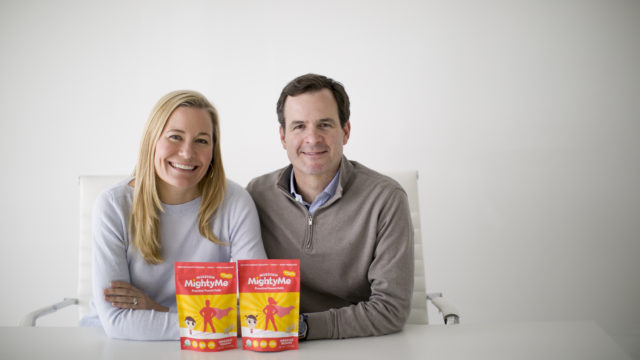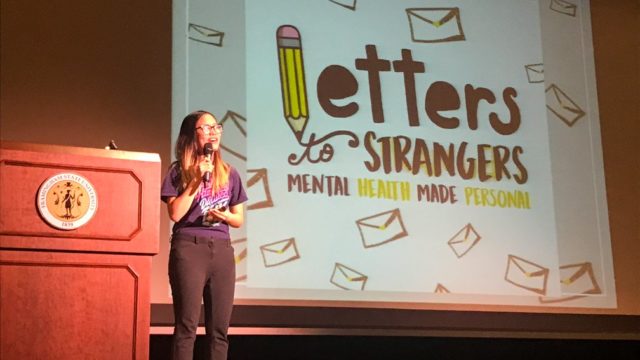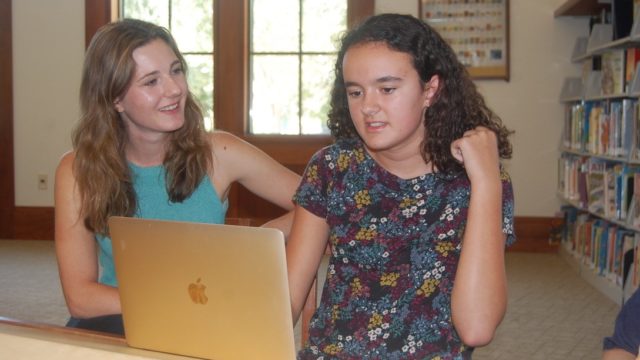As President of Midland University, Ben Sasse is Taking on Challenges in Education
By Julie Collins Bates (2001) | Ben Sasse wants you to know it’s OK to ask questions.
It might seem like peculiar advice. But a penchant for inquiry has served Ben well, as he’s moved from advising organizations in the throes of strategic crisis, to serving as U.S. Assistant Secretary of Health and Human Services to his current position as the fifteenth president of Midland University in Fremont, Nebraska.
And he’s only 39 years old.
When he wrote his Coca-Cola Scholars Foundation essay as a high school senior, Ben had no idea where his future would lead him. “I probably said crazy stuff about politics and finance in 15 directions,” Ben says. “I’m sure I said a whole range of things I’d be red-faced about today, but I think I was genuinely curious.”
That curiosity led Ben to Harvard, Oxford, and St. John’s before he ultimately received his Ph.D. from Yale University, where his work studying domestic politics during the Cold War won the Theron Rockwell Field Prize for best dissertation and the George Washing Egleston Prize for history.
From there, Ben says, he thinks of his career in “three different buckets.”
He began his career as a consultant in Boston, helping airlines, utilities, manufacturers, the Department of Homeland Security, the FBI, and the Federal Bureau of Prisons tackle some of their biggest challenges.
That’s the first bucket.
From there, he moved to the nation’s capitol and into the realm of government. “I’ve always been a policy nerd,” Ben admits.
In Washington, he served as a chief of staff in the U.S. House of Representatives and as the chief of staff of the Office of Legal Policy, an internal think-tank in the U.S. Department of Justice. In 2007, Ben was nominated by President George W. Bush to serve as U.S. Assistant Secretary of Health and Human Services—the nation’s largest federal agency.
That’s the second bucket.
Only now, as president of Midland University, Ben has moved on to his third bucket: Education.
Previously, Ben held academic appointments at Yale and the Lyndon B. Johnson School of Public Affairs at the University of Texas. He is a visiting scholar in economics at the Brookings Institution in Washington, DC, and a fellow at the Center for Politics and Governance at the University of Texas.
Yet he admits assuming the role of a university president was a leap into uncharted territory—and it came about partly by chance.
After Ben finished his post with the Bush administration, he and his wife, Melissa, bought a summerhouse near Fremont, where Ben was raised. It was on one of their summer visits that Ben learned about the challenges Midland was facing. “They called me and asked my advice because they knew I cared about Midland,” Ben recalls. “So what I did was go in and ask my usual questions. It turned out they had some pretty big challenges.”
And the next thing he knew, they were asking him a question: Would he run the school for them? Ben said yes.
In many ways, Ben’s work at Midland mirrors what he did with struggling organizations back in Boston. Once on campus, Ben moved quickly to make dramatic changes at the university—including changing the schools’ structure, faculty makeup, and mascot; redirecting recruiting efforts; and looking at ways he can prepare the school for the future.
Ben says the model for higher education will change radically in the next 10 to 20 years, and he wants to make certain Midland is prepared for that shift. That means he’s at it again: asking tough questions and making even tougher decisions.
“Most organizations start to do things based on historic precedent—saying ‘we’ve always done things this way’—and most people don’t know why they’re doing it,” Ben says. “If you ask questions as a leader, it gives the team freedom to start asking questions, too.”
The strategy appears to be paying off for Midland and its leader, one of the youngest chief executives in American higher education.
As for what happens next? You’ll just have to ask Ben.
Julie Collins Bates, a 2001 Coca-Cola Scholar, recently left behind a full-time freelance writing and editing career to direct campus and community sustainability programs at Lincoln Land Community College in Springfield, Illinois. In her spare time, she still takes on freelance assignments—including serving as the Scholar-editor of Quest.




